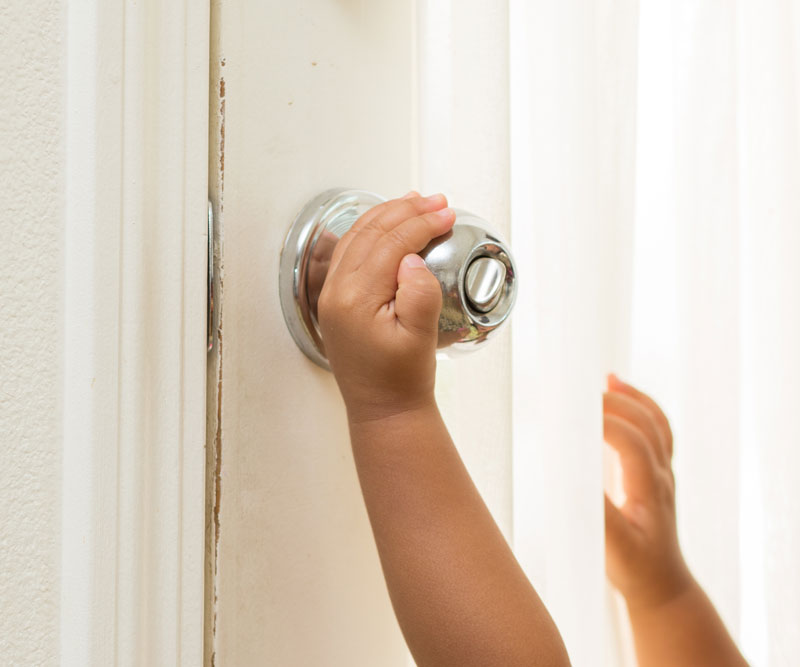
Prevent a Childhood Tragedy: Safeguard Your Keiki from Falls
Falls are the most common cause of nonfatal injuries in every childhood age group. They also are one of the most preventable.
Every year, emergency rooms across the nation treat 4,000 children for falls.
In 2013, Kapiolani Medical Center for Women & Children treated 44 children for injuries sustained in a fall. Of these cases, 17 were falls from a window or elevation (e.g., falling off a balcony or from a bunk bed).
“Any time a child falls, there is a possibility of a major head injury and long-term neurologic sequelae,” says Dr. Devin Puapong, a pediatric surgeon with Kapiolani Medical Center for Women & Children.
“Falls are the leading cause of traumatic brain injury in children,” Puapong continues. “Children’s heads are proportionally bigger than adults, and this, in combination with less-developed muscle strength and motor skills, predisposes them to head trauma when falling. Other potential injuries include broken bones and injuries to internal organs, such as the liver, spleen and kidneys.”
Thankfully, Puapong says rarely do children sustain debilitating injuries following a fall.
“Falling is part of normal childhood development as children learn to walk, run, jump and climb,” he explains.
However, Puapong notes that a majority of serious falls happen at home, and advises the following simple measures parents can take to ensure their child’s safety.
- Keep stairs free from clutter.
- Avoid placing furniture near windows.
- Place slip-resistant mats in bathtubs and showers.
- Install window guards (especially for multiple-story homes), stair gates and guard rails for bunk beds.
- Teach children to play a safe distance from windows and enforce this rule in your home. For example, “We play two BIG steps from windows.”
- Never leave children unattended on elevated surfaces, such as changing tables, high chairs or counter tops. Supervision is key.
- Set firm rules about staying away from unsecured balconies, fire escapes and roof tops, regardless of your child’s age.
- Keep windows and doors leading to balconies closed and locked when not in use.
Share this information with grandparents, child care providers, friends and neighbors who may have children visit their home. Keiki are at highest risk when supervising adults are distracted.
Published on: April 9, 2015




